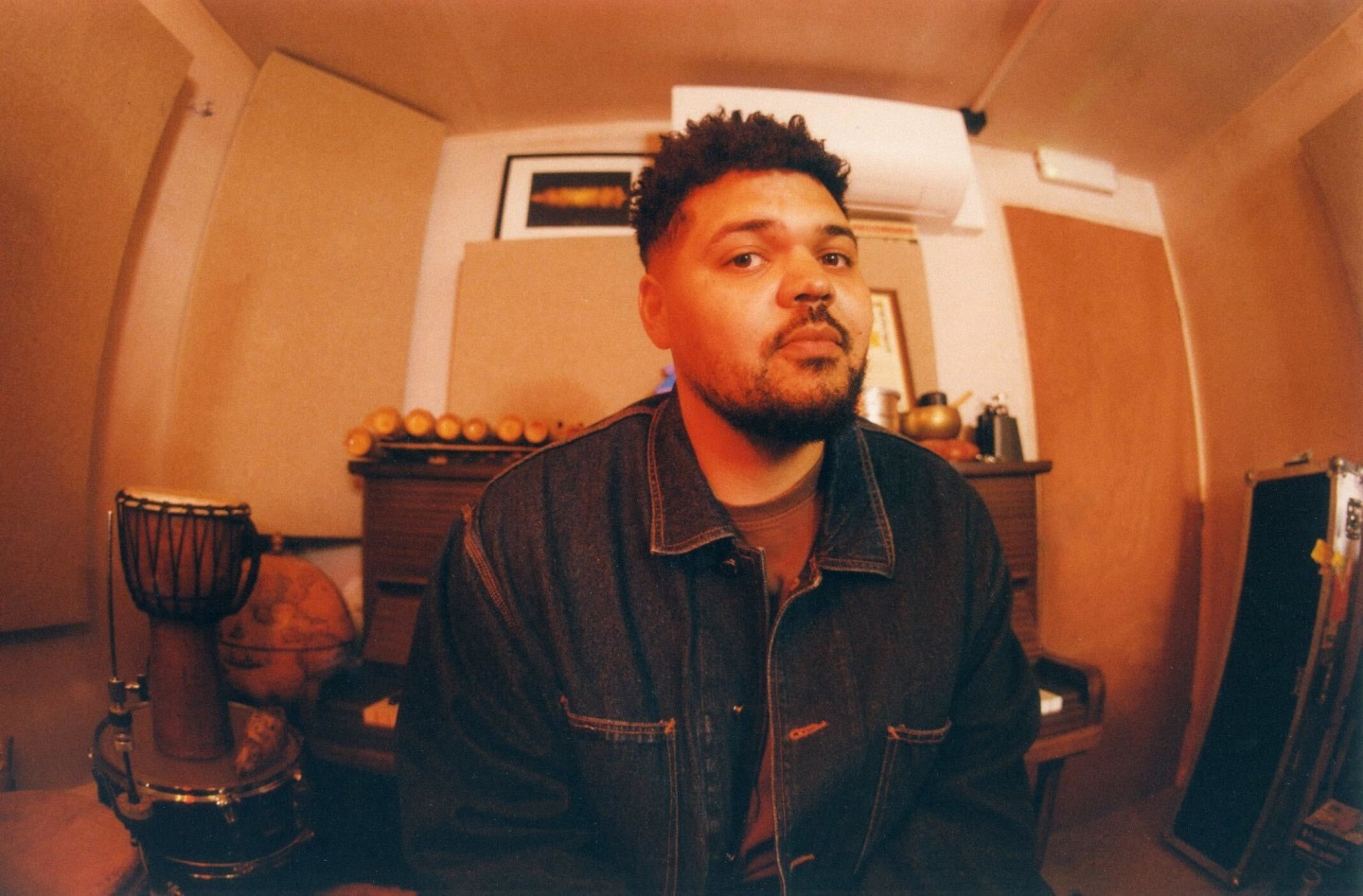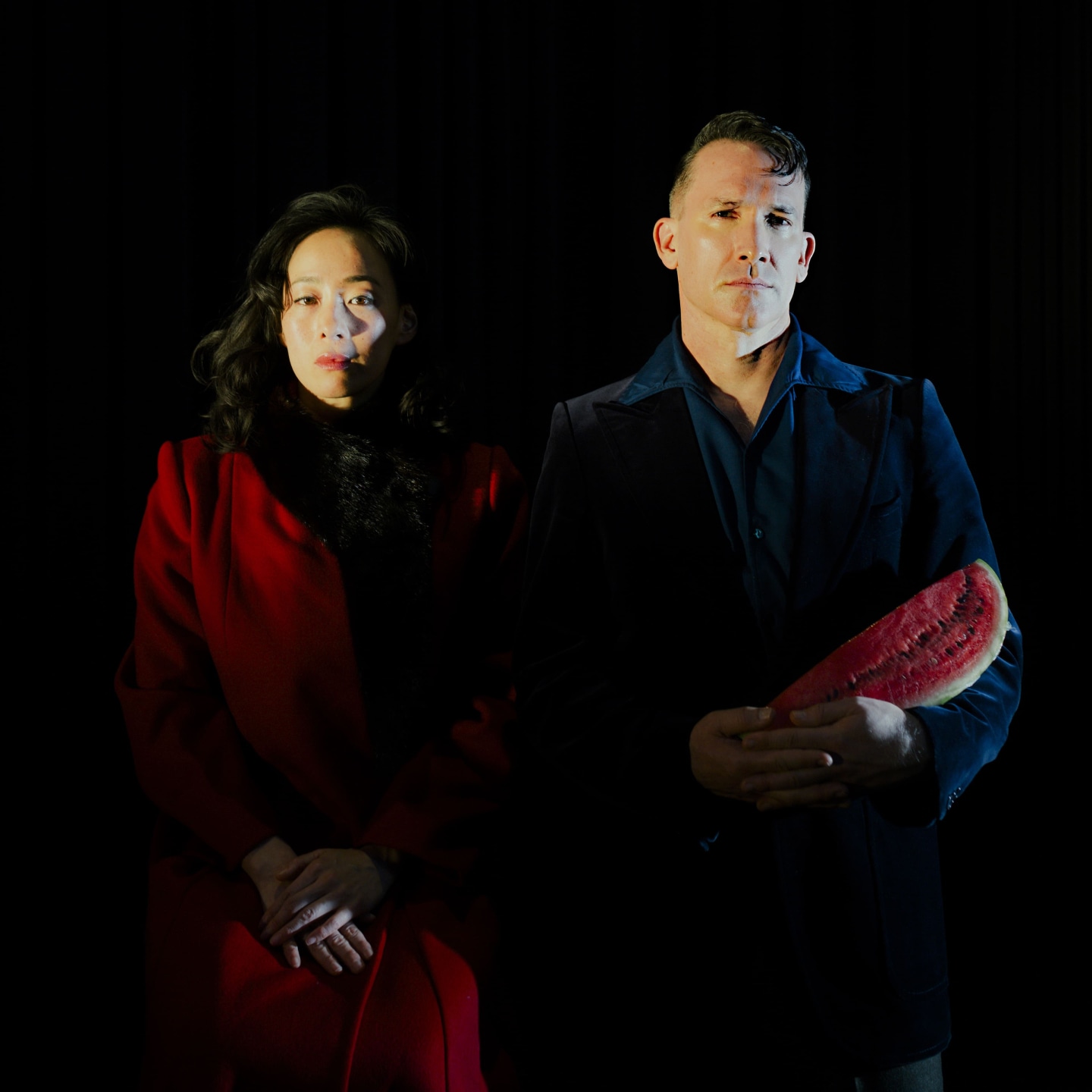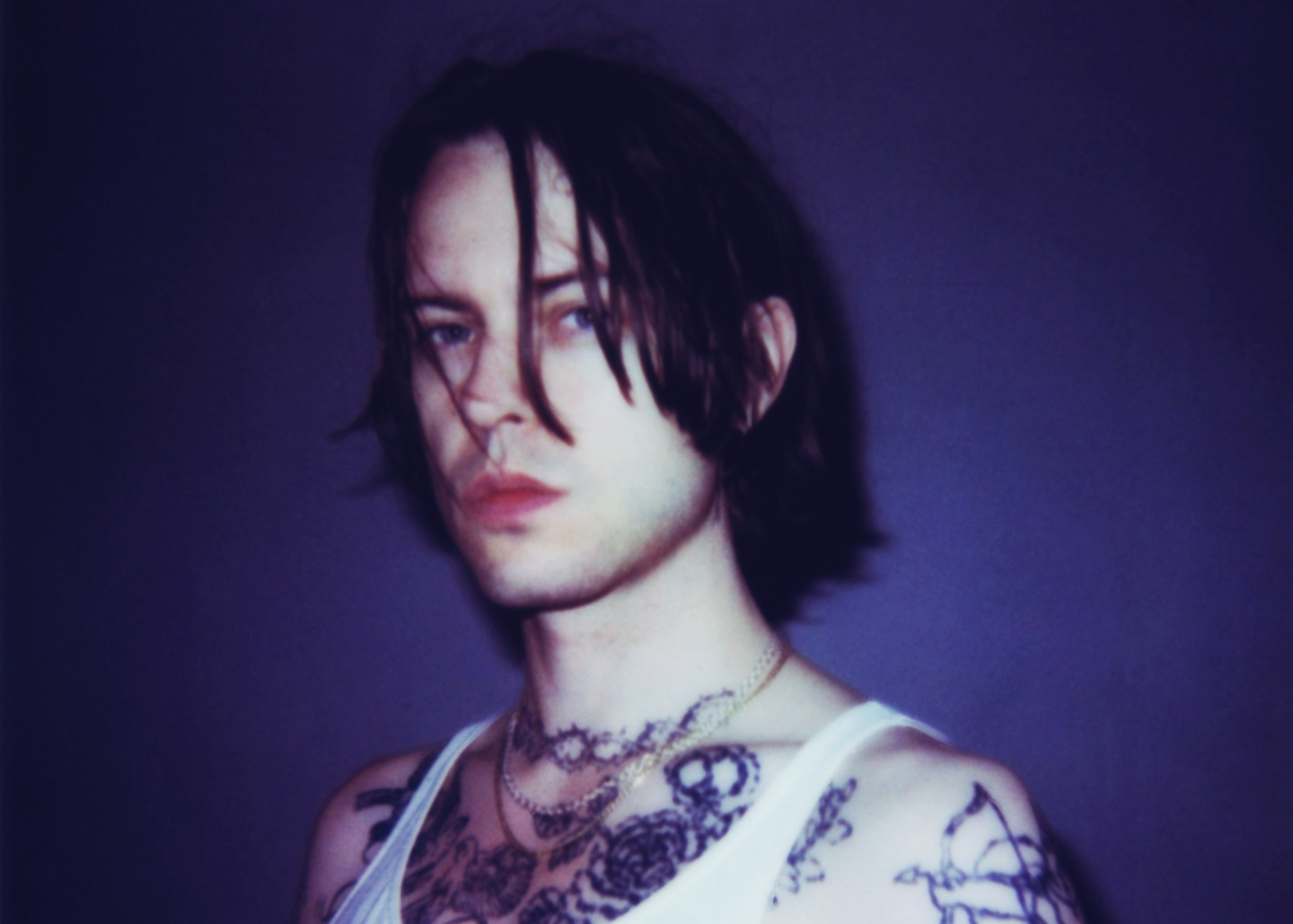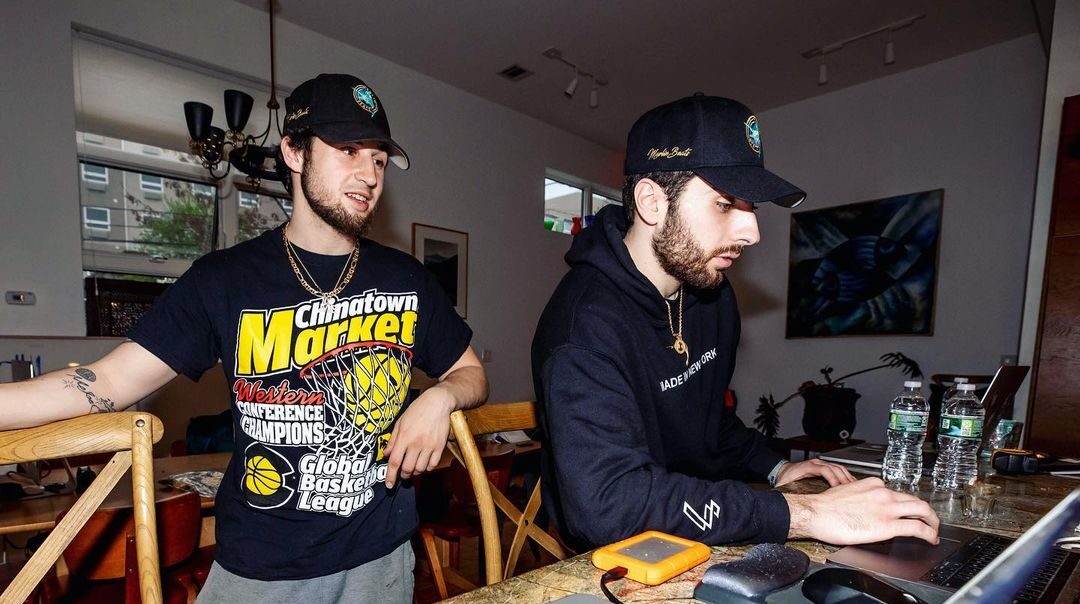Buster Grey-Jung
Ruthven doesn’t have an internal monologue. The singer-songwriter (whose real name is Sean Nelson) doesn’t hear a narrator as he goes about his day raising his two children, ages 10 and 12, with his wife in London. But he does hear music — building blocks of the ornate, synth-driven R&B he releases. “I can be in a conversation,” he says over a video call from his living room, “and I’m hearing a drum loop, or a melodic kind of line, or some chords coming through.” He ponders if it’s got something to do with a recent ADHD diagnosis, but he’s not complaining. “It suits me,” he says, a trace of glee cracking through his humble, cuddly exterior.
Before he worked on music full-time, Ruthven would take any opportunity to transcribe his inner scores. At his previous job as a fireman, he had one locker for his workwear and tools and another for his musical equipment. He remembers this efficient (and literal) compartmentalization with fondness, and how the setup laid the foundations for his career. In 2017, with the help of Jai and A. K. Paul, the generational talents who run Ruthven’s label Paul Institute, Ruthven’s songs emerged from the locker room and into the world with his first single, “Evil.”
Like Jai, Ruthven has a deep affection for sincere pop music and, by his own admission, a flair for the nostalgic: Prince, strains of sleazy funk, and neo-soul passion run through his early music’s veins like neon-colored plasma. Rough and Ready, Ruthven’s debut album, out October 25, expands on that pallet without leaving it behind. Take “Itch,” a sparse affirmation of mutually assured pleasure that’s dotted with Linn drum snares and crafted with as much attention to its composition as its lyrics (“I got an itch and it needs scratching / You do mine and I’ll get yours”). One of Ruthven’s greatest assets as a songwriter is his ability to sound like he’s performing for an audience of one. “Don’t Keep It To Yourself,” originally released in 2021, still feels like a sweet nothing whispered in a dark, comfortable room. But intimacy is not sacrificed for scale; tracks like the epic and enveloping “POV” sound like something Morris Day and the Time would make if they entered their Far Side Virtual era.
Rough and Ready puts singles released as early as 2021 shoulder-to-shoulder with brand new songs. It’s a canny move: While there is some sonic distance between the two categories, they come together to form a detailed picture of Ruthven as an artist with an approach to R&B that’s as etymological as it is progressive, with new tunings and possibilities unfurling moment to moment. Ahead, The FADER spoke to Ruthven about Steely Dan, Jai Paul’s puns, and why Rough and Ready’s live iteration may be its best.
The FADER: When we last spoke, you said that much of your stuff evokes “smile-inducing nostalgia.”
Ruthven: I’m happy that I said that. I do think it’s still where I’m at. It is slightly nostalgic, but it feels like it’s me. I think it’s fine to share your influences — I think to not be upfront about that would be disingenuous, to be completely honest. But it’s also important to step away from that if and when you need to.
People will end up coming up with something that sounds slightly different by molding what their influence is today. Yacht rock is massively appealing to a lot of people, but I also think that it’s maybe not seen as cool, you know? There’s some really cool songwriting, beautiful stuff. To me it really resonates.
Do you have a favorite Steely Dan project?
Aja. It’s a banger of an album. “Peg” is a household favorite. My kids know that song.
The Paul Institute has quite an air of mysterious cool about it. What is it like as a cultural center for a creative person?
I find it funny, the mystery and everything, because [Jai and A. K.] are just not really like that. The way things are packaged is somewhat esoteric. But they’re all just normal people — they crack jokes and have laughs and can be just as cringy as anybody else.
“I can be in a conversation and I’m hearing a drum loop, or a melodic kind of line, or some chords coming through. It suits me.”
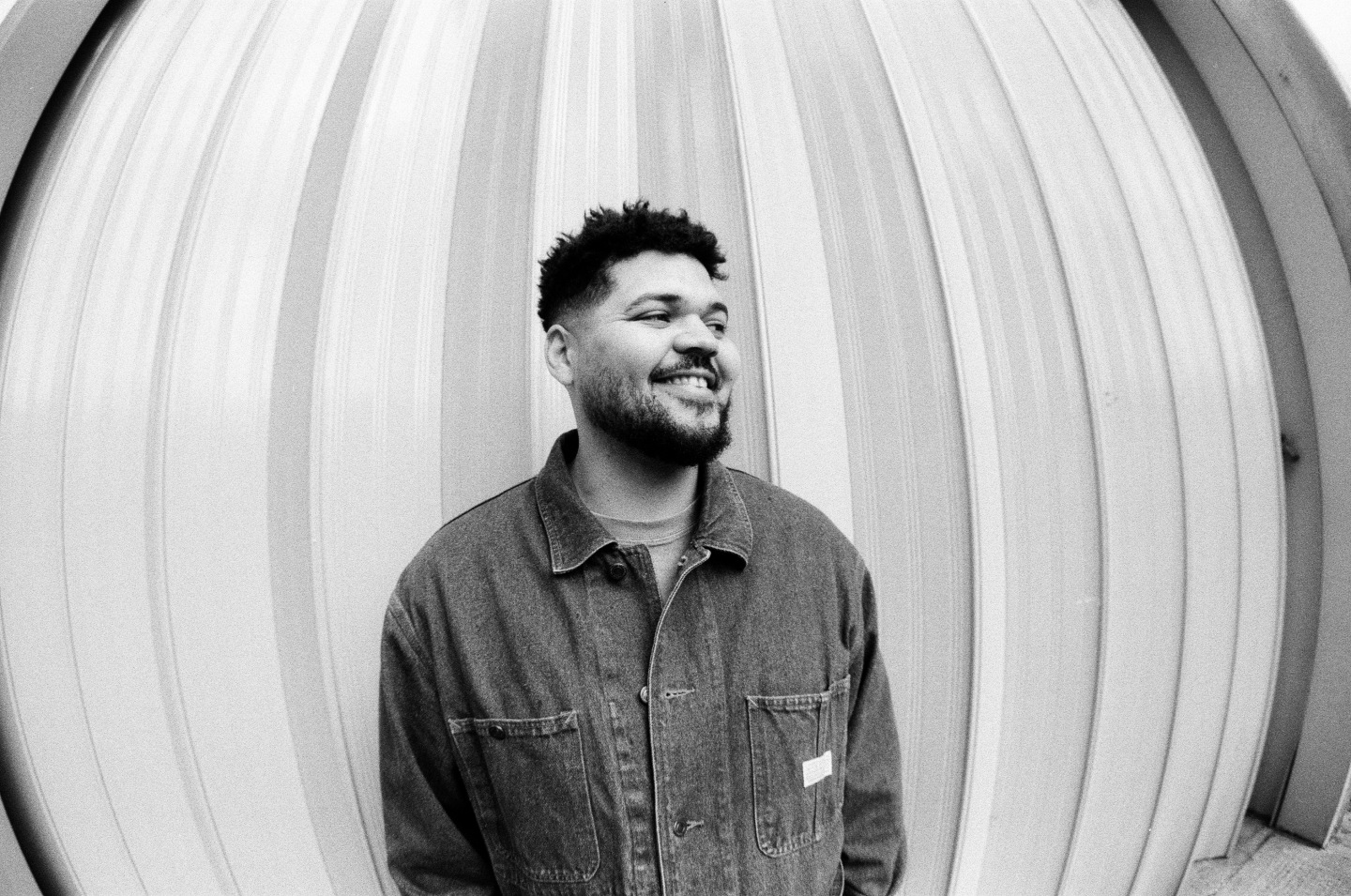
Buster Grey-Jung
I’m trying to imagine either of the Paul brothers making a pun and failing.
Nah dude, 100%. Especially in the studio, when they’re just being wacky dudes, man, proper zany scientists.
What did touring with Sampha teach you about your own music?
[It showed me] what I aspire to have as a live show. I think the album [Lahai] is excellent. It’s excellent. But when we were looking at the live versions, it spoke to me and touched something. These renditions of these songs, this is what they’re supposed to be.
Some of the songs on this album had their beginnings years ago, and some were written more recently. And of course, you have the singles that were released in 2021. Has your relationship to the music written earlier changed now that they’re a part of this project?
I tell you what, I’m building a live show and a lot of this music feels like it needs to be performed. I feel like it’s going to translate well [to the] live arrangements. Seeing it being performed hopefully does the job.
It has felt really cool, working on them live and putting together a live show and compiling them into an album, so you can see them and feel them in sequence. It feels like a perfect grouping of songs for me.
I saw Kim Gordon in concert a few months ago, and she just did her new album front to back. And I hadn’t seen anybody do that in concert in so long. I liked the album a lot before I went to go see her, but seeing it in that context as well, really opens it up.
I agree with that massively. It seems like [the album] is a bit of a dying form. I really hope it’s not, because I love the album and I love consuming in that way. If I really mess with an artist, I’m really in. “What was everything you were hearing in your mind for this period where you wrote that song I really resonated with?” My hope is that people can see that, and actually the project, as a journey. I think there’s definitely merit in still doing it, and the plan is to keep doing it in that way, forever.

